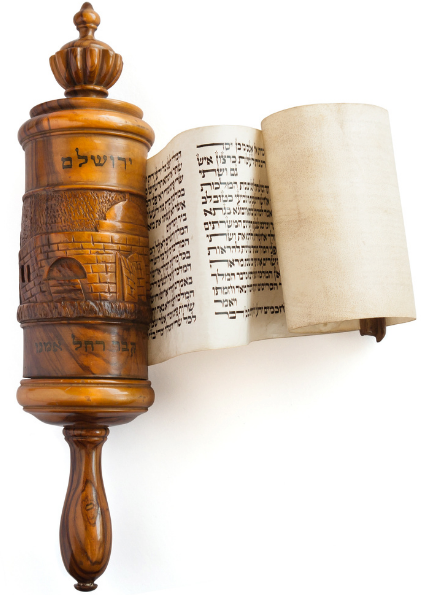 The holiday of Purim has four mitzvot (commandments): Hearing the Megilah, having a festive meal (se’udah), sending gifts of food to our friends (mishlo’aḥ manot), and giving gifts to the poor (matanot la’evyonim).
The holiday of Purim has four mitzvot (commandments): Hearing the Megilah, having a festive meal (se’udah), sending gifts of food to our friends (mishlo’aḥ manot), and giving gifts to the poor (matanot la’evyonim).  Megilah – the Scroll of Esther – is read twice over the course of Purim: Once in the evening, and once again during the daytime. It must be read from a Kosher scroll, written on parchment by a qualified scribe.
Megilah – the Scroll of Esther – is read twice over the course of Purim: Once in the evening, and once again during the daytime. It must be read from a Kosher scroll, written on parchment by a qualified scribe.
Both evening and morning readings are considered obligatory, but the daytime reading is considered the more important of the two.
It can be read at any time during the day, though most people read it in the morning in conjunction with the Shaḥarit prayers.
The custom is to make noise whenever the villains Haman or Zeresh are mentioned. The noise should come after they are pronounced so that listeners don’t miss hearing those names, which would render the Megilah Reading incomplete.
 Se’udah – A festive meal is to be eaten at some point during the day of Purim. It should include bread, so that one says Hamotzi at the beginning and Birkat Hamazon at the end.
Se’udah – A festive meal is to be eaten at some point during the day of Purim. It should include bread, so that one says Hamotzi at the beginning and Birkat Hamazon at the end.
Although the meal can take place at any time during the day, it is usually eaten late afternoon continuing into the night after Purim. When Purim falls on Thursday night and Friday, though, the meal is eaten earlier in the day so as not to ruin one’s appetite for the Friday Night Shabbat Dinner.
 Mishlo’aḥ Manot – each person sends at least two portions of food to at least one friend.
Mishlo’aḥ Manot – each person sends at least two portions of food to at least one friend.
Note the food must be edible when given; one cannot fulfill the mitzvah by giving a friend food that will require preparation before it can be eaten (raw chicken, for instance).
One does not fulfill this mitzvah by giving money.
Custom is to give two foods whose blessings are different; fruit and cake would be good options.
 Matanot La’evyonim – each person sends at least two gifts to two poor people (i.e. four gifts in total).
Matanot La’evyonim – each person sends at least two gifts to two poor people (i.e. four gifts in total).
This mitzvah is usually performed with money. One gives the amount needed to purchase two meals to two people.
Think: If a sandwich, a drink and a salad costs around $25 at a café, each person should donate $100: $50 each to two poor people.
Usually the money is given to the rabbi in advance, so that he or she can distribute it on the day of Purim, anonymously.
Contributions to synagogues or another charitable cause do not fulfill this mitzvah – it has to reach poor people who have actual trouble affording food.
At ICCJ, Rabbi Hillel collects money for Matanot La’evyonim through his Rabbi’s Discretionary Fund. The money collected will be anonymously distributed to poor people on your behalf, on the day of Purim, enabling you to fulfill this mitzvah in an ideal manner.
To contribute, bring or mail to our office a check payable to “Rabbi’s Discretionary Fund” with note “Matanot La’evyonim” (or simply “Purim”), or use the following form.

